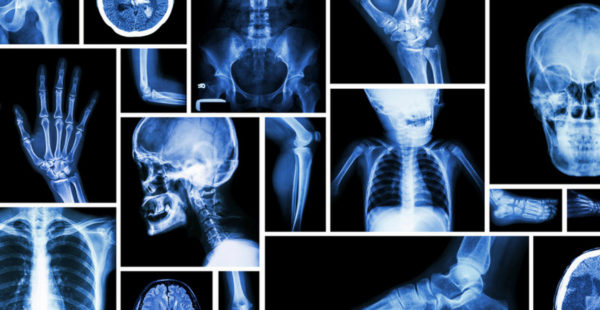Radiology & Imaging Science
What is Radiology?
Radiology is a field of medicine that uses imaging science techniques to treat and diagnose patients’ disease.
In the radiology field, a disease is determined that if a medical condition is present or not in a person.
Through the x-ray and other imaging science techniques, a medical condition of a person is predicted.

What is imaging science?
Imaging science is a multidisciplinary field concerned with the duplication, collection, generation, modification and visualization of images that a human eye cannot detect.
Radiologist
A radiologist is a medical doctor who delivers the treatment and diagnoses the diseases using medical imaging techniques like- magnetic resonance imaging (MRI), X-ray, positron emission tomography, computer tomography, fusion imaging and ultrasound.
Conditions and diseases for radiology
The radiological process is followed to diagnose and treat the following disease:-
- Arthritis
- Anemia
- Breast cancer
- Blood clots
- Brain tumor
- Bladder and kidney stone
- Lung cancer
There are many more diseases that radiological service is offered.
Do’s and don’ts during radiology exams
The following are the dos and don’ts a person should know before going for a radiology exam:-
- Don’t wear jewellery
- Wear loose-fitting clothes
- Do take medicine as prescribed
- Don’t use lotions and deodorants
- Don’t eat or drink 6 hours before the exam
- Don’t wear clothes that include any metal.
- Don’t wear an eye makeup
Types of radiology exams
- The following are the types of radiology tests that are used to determine the disease.
1. Computer tomography
Computer tomography is also called a CT scan. A computer tomography uses x-rays to create pictures of cross-sections of the body. CT scan includes the following test.
- Head or cranial CT scan
- Orbit CT scan
- Pelvis and abdomen CT scan
- Chest CT scan
- Thoracic, cervical and lumbosacral CT scan
2. Mammography
To determine breast cancer mammogram test is done. With the help of a mammogram, a radiologist predicts breast tumour and cancer.
Mammography is of two types that are as follows:-
- Traditional mammography
- Digital mammography
3. Magnetic resonance imaging
Magnetic resonance imaging is also known as MRI scans. MRI scan uses radio waves and powerful magnets to create a picture of the body. MRI is the advanced technology of imaging science.
Types of MRI are as follows.
- Cranial MRI
- Chest MRI
- Heart MRI
- Abdominal MRI
- Pelvis MRI
- Lumbar MRI
- Cervical MRI
- MR angiography (MRA)
4. Ultrasound
To get the pictures of organs and the structure of the body, a radiologist uses ultrasound technology.
Ultrasound uses high-frequency sound waves to create pictures of organs of the body.
5. Positron emission tomography
Positron emission tomography is also known as a PET scan. PET scan is done to see how the tissues and organs are working in the body. Positron emission tomography uses the radioactive substance to predict the disease in the body.
6. X-rays
X-ray is the type of electromagnetic radiation used to check any crack in the bone of the body. The following are the types of X-rays-
- Neck x-ray
- Skull x-ray
- Sinus x-ray
- Pelvis x-ray
- Joint x-ray
- Abdominal x-ray
- Hand x-ray
- Dental x-ray
- Bone x-ray
- Barium x-ray
Why Choose CKS
- ● CKS hospital is the leading radiology hospital in Jaipur.
- ● The department of radiology of CKS hospital delivers the best treatment to the patients.
- ● The radiologist of CKS hospital is very concerned for the health of patients.
- ● The department of radiology of CKS hospital has the latest and advanced technology for the radiological process.
- ● The department of radiology of CKS hospital is delivering the service to patients 24*7.
- ● The radiologist of the hospital is experienced and having vast knowledge of radiology.
- ● The department of radiology of CKS hospital delivers the services to patients of all age groups.
FREQUENTLY ASKED QUESTIONS
A radiologist interprets your radiology report and diagnoses the disease.
Mammography is done to predict breast cancer and tumour.
Wear loose-fitting and comfortable clothes during the test.